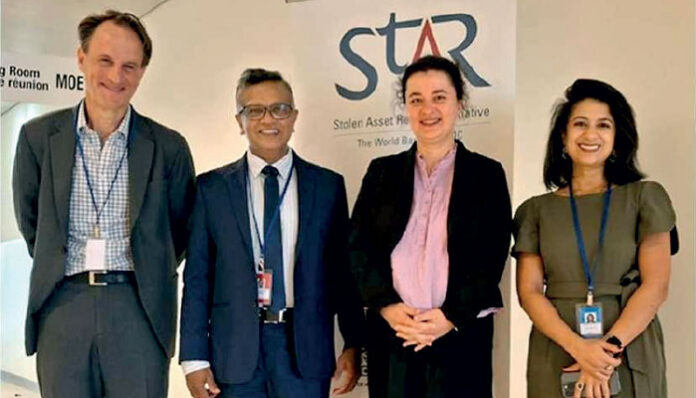By: Staff Writer
September 08, Colombo (LNW): Sri Lanka’s newly enacted Proceeds of Crime Act No. 5 of 2025 (POCA) is beginning to draw significant international attention, with the World Bank now stepping in to explore avenues of technical assistance for its enforcement.
The law, passed earlier this year, has been hailed as a turning point in the country’s decades-long struggle against corruption, illicit financial flows, and stolen assets. But its success will largely depend on the institutional capacity of enforcement agencies and on how effectively foreign expertise can be integrated into domestic structures.
The legislation provides sweeping powers to trace, freeze, confiscate, manage, and dispose of proceeds of crime, covering both conventional crime and high-level corruption.
With the Act in place, Sri Lanka becomes one of the few South Asian nations with a modern, comprehensive legal framework designed not just to prosecute offenders but also to recover stolen public wealth.
According to Transparency International, Sri Lanka loses an estimated USD 2–3 billion annually to corruption and illicit financial flows. POCA is expected to plug some of these leaks by institutionalising asset recovery.
The World Bank’s interest in supporting Sri Lanka emerged following discussions between Commission to Investigate Allegations of Bribery or Corruption (CIABOC) Chairman Justice Neil Iddawala and senior World Bank officials in Vienna last week.
Emile van der Does de Willebois, a leading figure in financial market integrity, along with experts from the World Bank’s Stolen Asset Recovery Initiative (StAR), expressed readiness to assist in technical areas ranging from electronic asset-tracing tools to investigator training.
The Foreign Ministry noted that Sri Lanka has previously benefitted from the World Bank–UN StAR partnership.
Assistance included drafting terms of reference for the long-delayed electronic asset declaration system for public officials and providing technical expertise for the Proceeds of Crime Policy, which laid the groundwork for the 2025 Act.
However, progress in actual implementation has been sluggish. For instance, the electronic declaration system remains non-operational despite years of planning, raising doubts about whether new commitments will be followed through effectively.
Investigators point out that while the legal framework is strong, Sri Lanka’s enforcement agencies remain chronically under-resourced.
The CIABOC currently has fewer than 300 officers to investigate a backlog of thousands of cases, making asset tracing across borders a formidable challenge. Without advanced data systems, inter-agency coordination, and judicial support,
POCA risks being reduced to another paper tiger. This is where World Bank technical support could prove decisive if accompanied by genuine political will.
The discussions in Vienna also highlighted the need for institutional reforms to sustain long-term asset recovery mechanisms. Experts stress that corruption networks are increasingly global, often moving funds through complex offshore structures.
Effective enforcement will therefore require strong cross-border cooperation and modern forensic accounting tools, areas where Sri Lanka lags far behind.
By placing Sri Lanka’s asset recovery drive on the agenda of the United Nations Convention Against Corruption (UNCAC) forum, Justice Iddawala signaled the country’s intention to showcase POCA as a reform milestone.
But critics warn that unless tangible results are produced such as the recovery of high-profile stolen assets—the Act risks being dismissed as another symbolic gesture.
The road ahead is clear: Sri Lanka must combine legislative power with technical expertise and institutional reform. The World Bank’s willingness to engage is an opportunity, but the real test will be whether Sri Lanka can translate promises into results.
